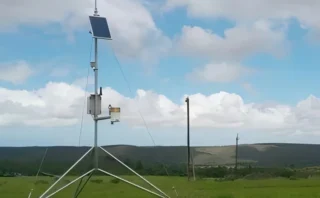Potential voters from across the United States are eagerly awaiting Tuesday night’s Democratic primary debate, which could potentially underscore the deep divide between frontrunners Bernie Sanders and Hillary Clinton.
The debate is on CNN beginning at 8:30 PM EDT and will be streamed live here.
Though five people will be on the stage, many are framing the debate as a two-way face off between Sanders and Clinton, given the polling gap between them and long-shot candidates Martin O’Malley, Jim Webb, and Lincoln Chafee.
While Sanders is seen as the more exciting and populist candidate, and has made calling for “political revolution” one of his guiding slogans , Clinton—though she maintains a national lead in polls—continues to suffer as an establishment candidate who has failed to prove she can energize the party’s base or attract new kinds of voters.
“The encounter will provide a crucial opportunity for Clinton and Sanders…to contrast their personalities, experience and approach to the key issues in the campaign,” Stephen Collinson wrote for CNN.
Reuters reports that Clinton “has veered hard to the left” ahead of the debate, “hoping to inoculate herself from criticism by rival Bernie Sanders and woo the union members and liberal activists who have been slow to embrace her.”
Indeed, in the hours before the debate, members of the first national union to endorse Sanders—National Nurses United—held a rally and march in Las Vegas to demonstrate their support for the self-described democratic socialist. “What Bernie’s campaign represents is an opportunity to not just speak truth to power, but to join movements together to change our country,” said NNU executive director RoseAnn DeMoro, who will also be live-tweeting the event.
Whether Tuesday’s debate affords Sanders the opportunity to differentiate his “political revolution” on the national stage remains to be seen.
While softball questions could highlight overlaps between the candidates on issues like raising the minimum wage or making college affordable, the reality is that “the leading Democratic candidates have major differences on the fundamental structure of our political economy,” argued Campaign for America’s Future founder Robert Borosage on Tuesday. “And money—big money in politics—is at the center of those differences.”
Debate moderators could help elucidate those divisions, Borosage suggested, by asking questions like:
More than one analyst put the onus on Tuesday’s moderators. CNN’s Anderson Cooper, Don Lemon, Dana Bash, and Juan Carlos Lopez will be “among the most powerful people in the room,” wrote David Donnelly, president and CEO of the pro-democracy group Every Voice, on Tuesday.
To that end, Donnelly advised, they could ask:
- To give regular people a bigger voice in politics, at least three of you have said Congress should create a system that would match small donations with public funds. How would you pressure Congress to pass this legislation?
- There has been a big increase in political spending by groups that don’t disclose their donors. Would you use administrative action and regulatory power to add transparency to such spending?
- Throughout his campaigns, President Barack Obama said he’d work to reform the broken campaign finance system. So far, he hasn’t done much other than give speeches. How would your administration be different?
Also on Tuesday, William Hartung, director of the Arms and Security Project at the Center for International Policy, added a few proposals for questions that cover the candidates’ foreign policy and national security strategies:
- Do they have a plan to further reduce the world’s massive stockpile of nuclear weapons? Will they vigorously defend and faithfully implement the Iran nuclear deal in the face of ongoing opposition?
- What are their proposals for dealing with climate change, which is as much a security issue as it is an environmental one?
- How will they balance human rights concerns with the effort to arm and train a coalition to fight ISIS? And on that point, how will they approach the issue of U.S. support for the vicious Saudi bombing campaign in Yemen?
- Will they pledge to root out the tens of billions of wasteful spending at the Pentagon before throwing more money at the department?
Meanwhile, three major national organizations—MoveOn.org, Democracy for America, and the Progressive Change Campaign Committee—who say they represent “the Warren wing” of the Democratic Party, sent letters to the candidates last week, urging them to be “bold on economic populism issues” during Tuesday’s debate.
The groups produced this video pushing the candidates to “pro-actively elevate” topics such as debt-free college, expanding Social Security, racial justice, and Wall Street accountability during their time at the podium:
“If CNN manages to get past the meta issues and horse-race preoccupations, they may stumble upon something interesting,” wrote Salon‘s David Dayen on Tuesday, in a piece that included “13 vital questions CNN should (but won’t) ask” at the debate.
“The historic 2008 primary, after all, was mostly an issues-based election, with voters choosing between subtle yet important differences among the major candidates,” he explained. “Despite Clinton’s best efforts to elide those differences, with stands in recent weeks against the Keystone XL pipeline, the Cadillac tax, and the Trans-Pacific Partnership, they are far more pronounced this time around. The battle for the soul of the Democratic Party may not look as chaotic as its counterpart on the right, but it hangs over this debate, with much of the energy firmly on the left edge of the party.”
He continued: “Unfortunately, that debate, one that explores these fissures, isn’t likely to appear tonight.”
